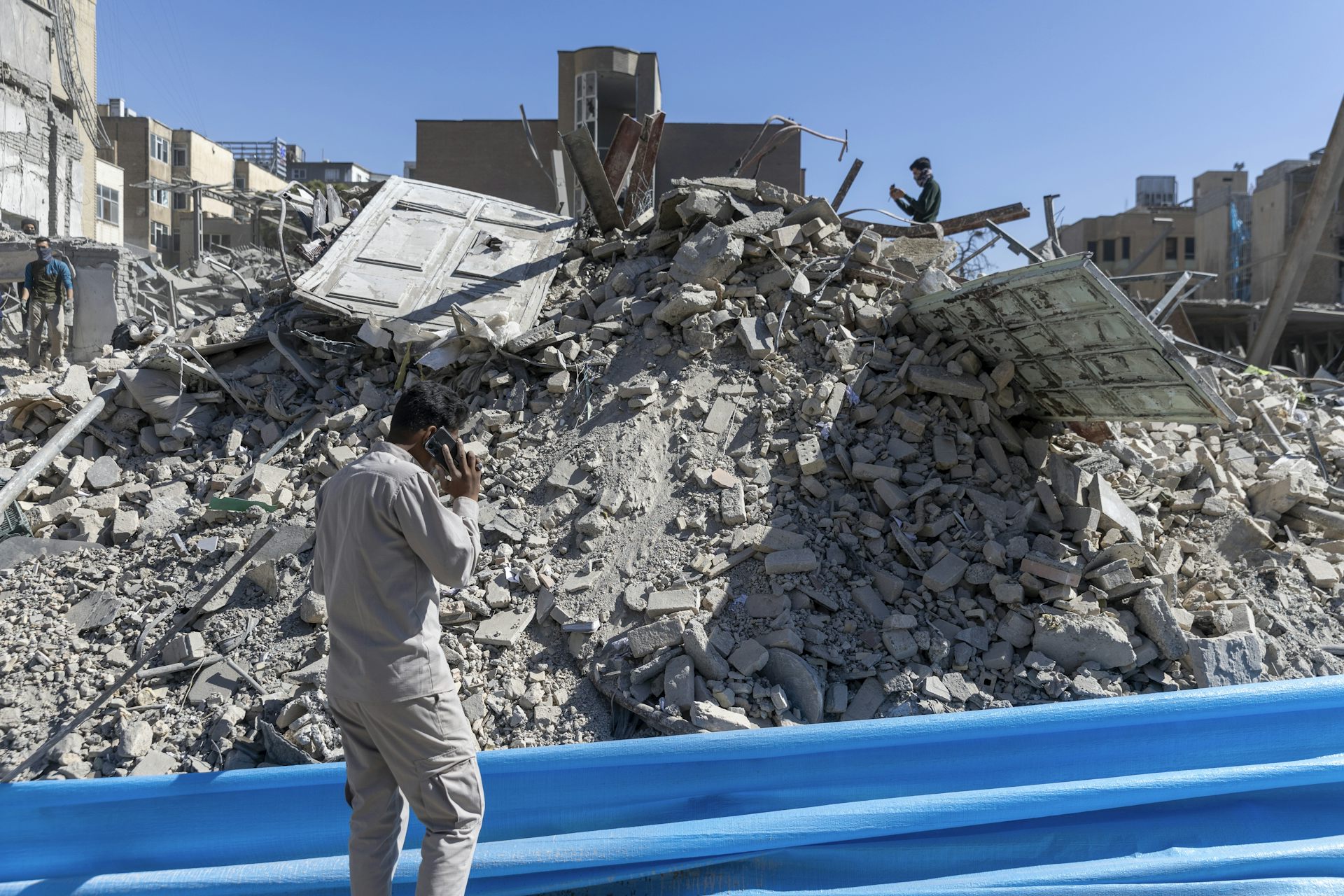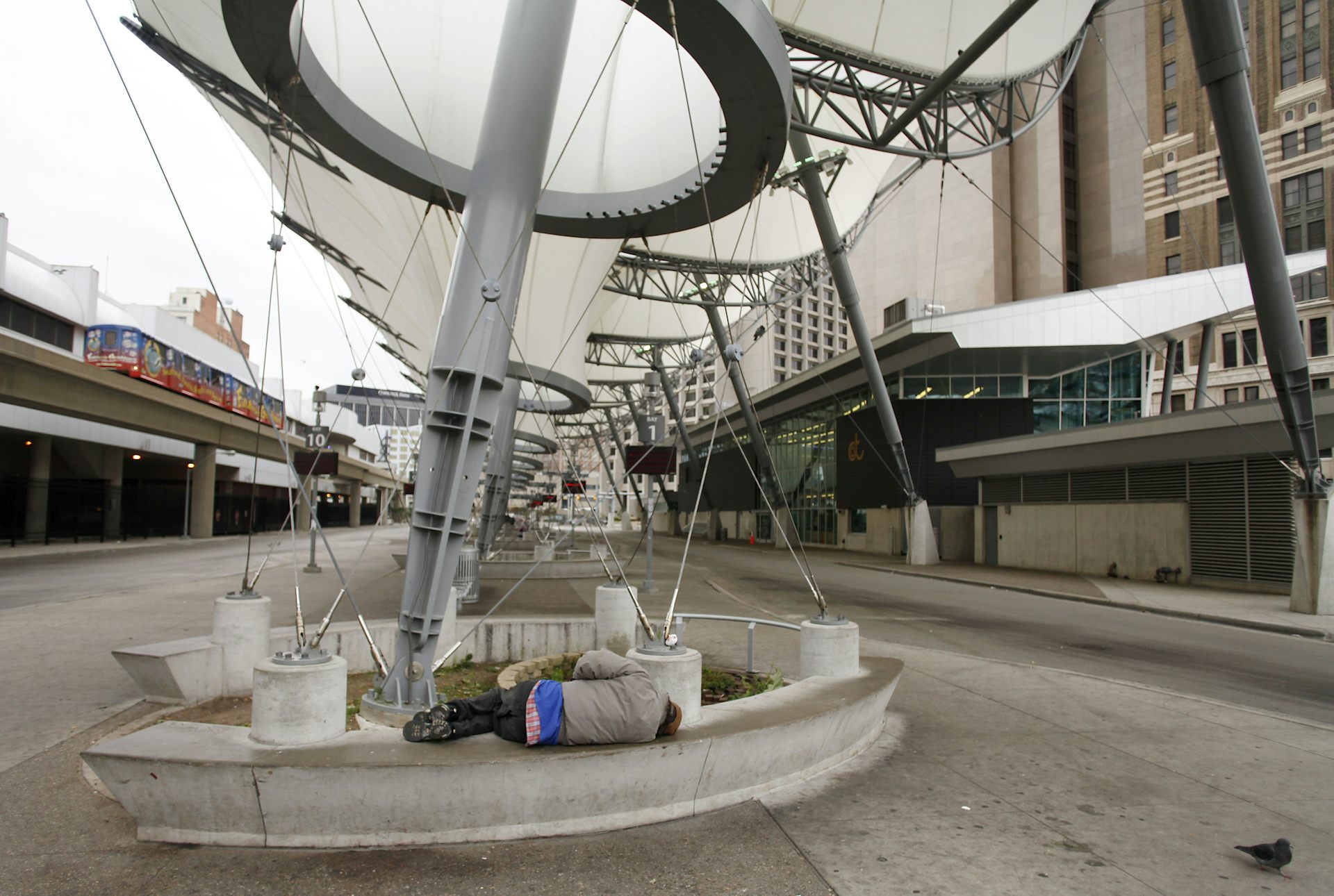We're not ready for the 'silver tsunami' of older adults living with cancer
The number of adults living with cancer is expected to triple in size by 2030. How can we prepare for this public health challenge?

In the next few decades, the number of adults living with cancer is expected to triple in size.
Age is the single greatest risk factor for cancer. By 2030, according to the Centers for Disease Control and Prevention, the population of Americans over the age of 65 will double.
The good news is that early detection, innovative treatments and supportive care have turned many cancers into chronic illnesses, one disease among other chronic health conditions that older adults may experience. But these coexisting health conditions are likely to complicate the treatment and management of older adults’ cancer.
Our current understanding of appropriate care for older adults with cancer and their unique needs is limited. As an expert in cancer survivorship and aging, I see several specific areas that warrant our attention.
Generational differences

Cancer in older adults is complex. For the elderly, cancer is often one of several coexisting health conditions that they may be managing, such as heart disease, arthritis or diabetes. Eighty percent of older adults with cancer report two or more additional health conditions. One in four cancer survivors between 65 and 74 years old have more than five concurrent health conditions.
Older adults with multiple chronic conditions are more likely to have poorly coordinated care, adverse interactions between medications and worse health outcomes. They also tend to use more health care services and, on average, take six or more prescription medications.
In older adults, the late health effects of cancer can be different or exacerbated by age. For example, cancer-related fatigue, reductions in cognitive function and chemotherapy-induced peripheral neuropathy can pose unique issues. The interplay between these treatment-related effects and common age-related issues presents challenges for care of older adults with cancer.
The psychological and social experience of cancer can also differ markedly for young and older adults. Roles, responsibilities and support systems change as people age. Many young adults with cancer are dealing with competing demands of work or family. Having fewer demands as an older adult might make the disease more manageable in some respects.
But a decrease in social networks and support – such as retirement or living farther away from family – may have negative effects. Many older adults will minimize their distress, so not to burden their families and caregivers. This leads to underdiagnosis of treatable distress.
These effects can be exacerbated by health care providers with competing priorities, short office visits and no organizational support for psychosocial distress screening.
Health care providers
In 2008, the National Academy of Medicine warned of a looming shortage of geriatric oncologists and nurses, as well as a lack of interest among medical professionals in geriatric oncology.
The number of oncology office visits required by older adults with cancer is projected to surpass the available oncologic workforce by 2020. What’s more, older adults may see up to 12 different health care specialists in a given year.
Who should coordinate this care? Oncologists are experts in the diagnosis and treatment of cancer, but many older adults have competing health concerns that require more than just an oncologist. Geriatricians are trained in managing multiple health conditions and optimizing functional performance in older adults, but may be less familiar with managing cancer.
We need to make a concerted effort to foster collaborative care partnerships between geriatricians and oncology – including geriatric nurses in both fields, as they are on the front lines interacting with older cancer patients. A team of health professionals could jointly share responsibility for managing the health of older adults with cancer, exchanging patient data and information between the team.
Research shows that this type of collaborative model leads to better cancer follow-up care, health outcomes and effective management of coexisting health conditions.
Focus on the family
Cancer is a disease that reverberates across the family system, leaving no one untouched. In fact, research suggests that caregivers and family members often report higher levels of distress than does the individual with cancer.
With more and more cancer care delivered on an outpatient basis, coupled with the changing nature of cancer as a chronic disease, there is a growing burden on family to help a loved one manage their disease. Moreover, many older family members may themselves be dealing with a chronic illness and other life stressors, adding to the burden.
Research suggests that providing psychological and educational support for cancer caregivers and family members may improve not only the health of patients, but the health of caregivers.
What’s next?

Planning for the health care needs of our aging cancer survivors represents a significant public health challenge.
What we know about caring for cancer survivors is largely based on the experiences of adult survivors of child-onset cancer and proactive groups of middle-aged breast cancer survivors. There is an urgent need for additional research on the needs and care of the burgeoning geriatric population.
In 2010, the U.S. Department of Health and Human Services released a report on multiple chronic conditions. It recommended including older adults with multiple chronic conditions in clinical trials, facilitating self-care management and promoting multiple chronic condition curricula in the health care sector. It also suggested educating the federal, private and public sectors about issues related to multiple chronic conditions.
While this national initiative is encouraged, it’s clear that the growing number of older adults with cancer outpaces current efforts. If we want to successfully respond to the demand, we must find ways to quickly conduct meaningful and targeted research on this unique population. This can help us develop best practices and offer high-quality care.
Keith M. Bellizzi receives funding from the National Cancer Institute and the University of Connecticut.
Read These Next
GLP-1 drugs may fight addiction across every major substance, according to a study of 600,000 people
GLP-1 drugs are the first medication to show promise for treating addiction to a wide range of substances.
Congress once fought to limit a president’s war powers − more than 50 years later, its successors ar
At the tail end of the Vietnam War, Congress engaged in a breathtaking act of legislative assertion,…
Housing First helps people find permanent homes in Detroit − but HUD plans to divert funds to short-
Detroit’s homelessness response system could lose millions of dollars in federal funding for permanent…






